2021-2022 Inter-CFAR IS Fellows
 Dr. Lunthita Duthely’s interest is in developing and implementing multi-lingual interventions to improve health outcomes of ethnic minority women followed in clinical settings. She has a particular interest in applying a strengths-based approach to mitigate health inequities for women living with HIV. As an investigator, her current work explores the relationship between psychological resilience, stigma, depression, well-being, and the use of technology to improve adherence to HIV care across the healthcare continuum
Dr. Lunthita Duthely’s interest is in developing and implementing multi-lingual interventions to improve health outcomes of ethnic minority women followed in clinical settings. She has a particular interest in applying a strengths-based approach to mitigate health inequities for women living with HIV. As an investigator, her current work explores the relationship between psychological resilience, stigma, depression, well-being, and the use of technology to improve adherence to HIV care across the healthcare continuum
 Dr. Jessica Y. Islam, PhD, MPH is a cancer epidemiologist and health services researcher focused on evaluating and intervening on cancer care disparities across the continuum, at the intersection of infections and cancer. Her research interests include the prevention of cancers caused by infection, disparities of treatment and outcomes among gynecologic cancer patients, and disparities in cancer care of people living with HIV in the US and globally. Her research focuses on cervical cancer prevention through novel screening methods and community-based approaches. Dr. Islam’s research program also focuses on evaluating cancer care outcomes among people living with HIV (PLWH) in the US using multi-payer health insurance claims and large cancer-focused databases. Through her research program, Dr. Islam aims to improve cancer outcomes among vulnerable populations, including racial/ethnic minorities and PLWH, using multi-level approaches, epidemiological methods, and an equity-focused lens.
Dr. Jessica Y. Islam, PhD, MPH is a cancer epidemiologist and health services researcher focused on evaluating and intervening on cancer care disparities across the continuum, at the intersection of infections and cancer. Her research interests include the prevention of cancers caused by infection, disparities of treatment and outcomes among gynecologic cancer patients, and disparities in cancer care of people living with HIV in the US and globally. Her research focuses on cervical cancer prevention through novel screening methods and community-based approaches. Dr. Islam’s research program also focuses on evaluating cancer care outcomes among people living with HIV (PLWH) in the US using multi-payer health insurance claims and large cancer-focused databases. Through her research program, Dr. Islam aims to improve cancer outcomes among vulnerable populations, including racial/ethnic minorities and PLWH, using multi-level approaches, epidemiological methods, and an equity-focused lens.
 Dr. Amanda P. Miller (she/her) is a Postdoctoral Fellow in the Global AIDS Prevention Research Training Program at the University of California, Los Angeles’ Department of Epidemiology, in the Fielding School of Public Health. She received her MS in Global Health Sciences from the University of California, San Francisco and her PhD in Public Health from the University of California, San Diego. Amanda’s research has primarily focused on the intertwined epidemics of HIV, substance use and related co-morbidities (e.g., poor mental health, intimate partner violence) that both increase risk of HIV infection and are associated with adverse health outcomes among persons living with HIV. Her current work is focused on understanding drivers of alcohol use among pregnant women in South Africa to inform intervention programming to address this HIV risk behavior in a population that experiences a heavy burden of both alcohol use and incident HIV. She is currently supported by a NIMH training grant (T32-MH080634).
Dr. Amanda P. Miller (she/her) is a Postdoctoral Fellow in the Global AIDS Prevention Research Training Program at the University of California, Los Angeles’ Department of Epidemiology, in the Fielding School of Public Health. She received her MS in Global Health Sciences from the University of California, San Francisco and her PhD in Public Health from the University of California, San Diego. Amanda’s research has primarily focused on the intertwined epidemics of HIV, substance use and related co-morbidities (e.g., poor mental health, intimate partner violence) that both increase risk of HIV infection and are associated with adverse health outcomes among persons living with HIV. Her current work is focused on understanding drivers of alcohol use among pregnant women in South Africa to inform intervention programming to address this HIV risk behavior in a population that experiences a heavy burden of both alcohol use and incident HIV. She is currently supported by a NIMH training grant (T32-MH080634).
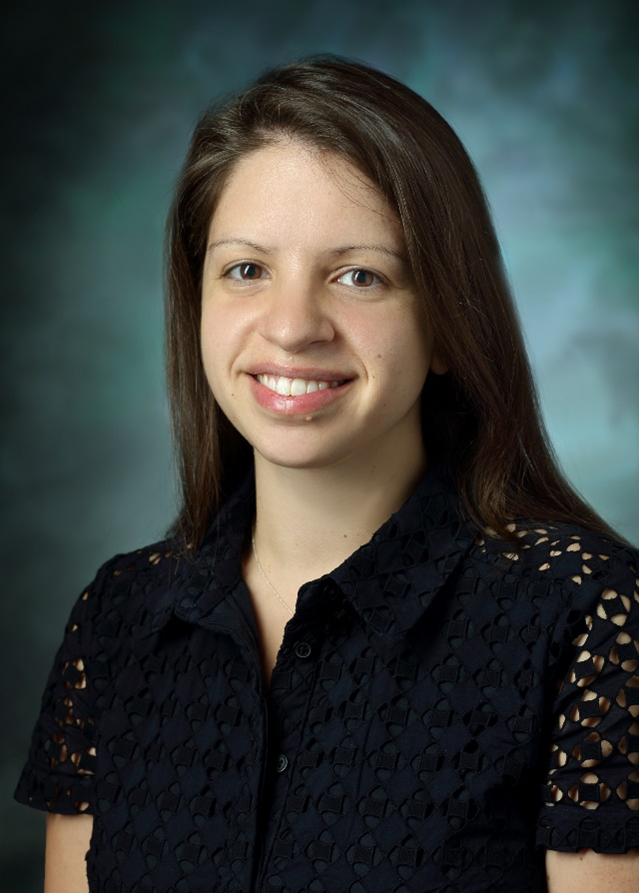 Dr. Nicole Salazar-Austin is an Assistant Professor of pediatrics in the division of pediatric infectious diseases at the Johns Hopkins University School of Medicine. Her research focuses on combining existing and new biomedical interventions in tuberculosis with novel pediatric health care delivery models to improve implementation of TB preventive treatment in TB-exposed children and adolescents with and without HIV worldwide
Dr. Nicole Salazar-Austin is an Assistant Professor of pediatrics in the division of pediatric infectious diseases at the Johns Hopkins University School of Medicine. Her research focuses on combining existing and new biomedical interventions in tuberculosis with novel pediatric health care delivery models to improve implementation of TB preventive treatment in TB-exposed children and adolescents with and without HIV worldwide
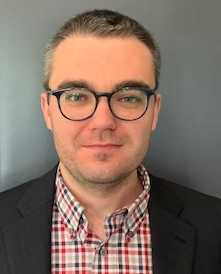 Dr. Christopher Owens, PhD, MPH, (he/him) is an Assistant Professor in the Department of Health and Kinesiology at the Texas A&M University College of Education and Human Development. He received his MPH and PhD in Health Behavior from the Indiana University School of Public Health-Bloomington and completed a Postdoctoral Fellowship at the Northwestern University Institute for Sexual and Gender Minority Health and Wellbeing. His postdoctoral training focused on HIV prevention in adolescent sexual minority males. His work focuses on three main areas: (1) HIV prevention continuum among adolescent/adult sexual and gender minorities, (2) uptake of HIV prevention evidence-based practices among healthcare providers, and (3) HIV prevention in rural settings.
Dr. Christopher Owens, PhD, MPH, (he/him) is an Assistant Professor in the Department of Health and Kinesiology at the Texas A&M University College of Education and Human Development. He received his MPH and PhD in Health Behavior from the Indiana University School of Public Health-Bloomington and completed a Postdoctoral Fellowship at the Northwestern University Institute for Sexual and Gender Minority Health and Wellbeing. His postdoctoral training focused on HIV prevention in adolescent sexual minority males. His work focuses on three main areas: (1) HIV prevention continuum among adolescent/adult sexual and gender minorities, (2) uptake of HIV prevention evidence-based practices among healthcare providers, and (3) HIV prevention in rural settings.
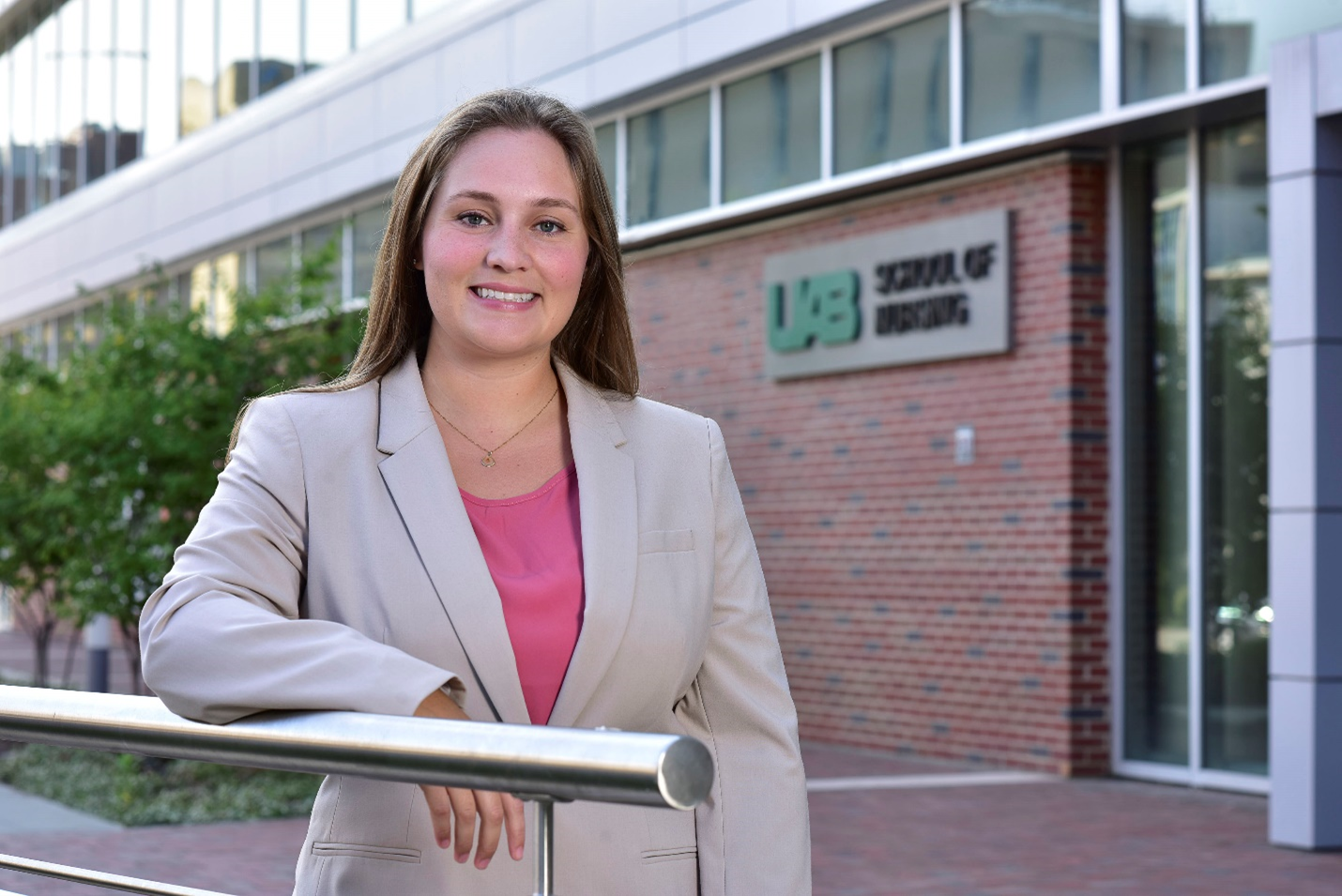 Dr. Jessica Corcoran is an Assistant Professor in the School of Nursing at the University of Alabama at Birmingham (UAB). She received her BSN, MSN, and PhD from the UAB School of Nursing. She is a former Robert Wood Johnson Foundation Future of Nursing Scholar. Her pilot work has examined pediatric healthcare providers sexual health discussions and STI/HIV screening practices with their adolescent patients. She is also a Co-I on an Ending the HIV Epidemic UAB CFAR Supplement evaluating the implementation of a novel partnership between an academic medical center, a historically black college, and a healthcare service organization to increase HIV/STI screening, PrEP referral, and uptake of services.
Dr. Jessica Corcoran is an Assistant Professor in the School of Nursing at the University of Alabama at Birmingham (UAB). She received her BSN, MSN, and PhD from the UAB School of Nursing. She is a former Robert Wood Johnson Foundation Future of Nursing Scholar. Her pilot work has examined pediatric healthcare providers sexual health discussions and STI/HIV screening practices with their adolescent patients. She is also a Co-I on an Ending the HIV Epidemic UAB CFAR Supplement evaluating the implementation of a novel partnership between an academic medical center, a historically black college, and a healthcare service organization to increase HIV/STI screening, PrEP referral, and uptake of services.
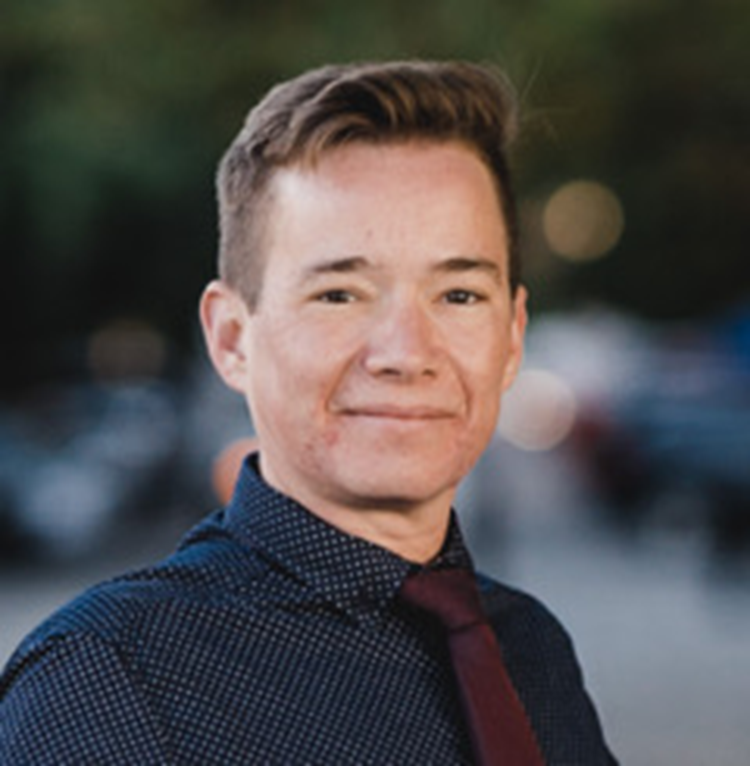 Dr. Will Beckham, PhD, MPH/MA, (he/him) is an Assistant Scientist at JHSPH in the Department of Health, Behavior and Society. His interests are in LGBTQ health disparities, particularly for transgender and gender-diverse people. His current research focuses on preferences for long-acting injectable PrEP among MSM in the US and the health impacts of the COVID-19 pandemic on transgender communities. In the future, he plans to use implementation science approaches to improve access to HIV prevention for transgender men and other transmasculine people.
Dr. Will Beckham, PhD, MPH/MA, (he/him) is an Assistant Scientist at JHSPH in the Department of Health, Behavior and Society. His interests are in LGBTQ health disparities, particularly for transgender and gender-diverse people. His current research focuses on preferences for long-acting injectable PrEP among MSM in the US and the health impacts of the COVID-19 pandemic on transgender communities. In the future, he plans to use implementation science approaches to improve access to HIV prevention for transgender men and other transmasculine people.
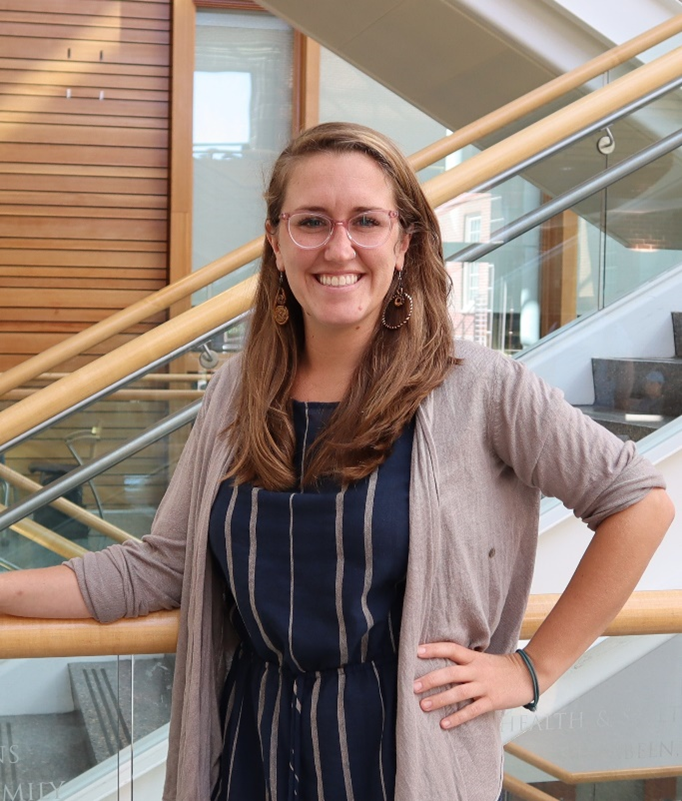 Dr. Lindsey Filiatreau is a Postdoctoral Scholar in the LEAD Global Training Program at Washington University in St. Louis. Before joining the WashU team, Lindsey completed her doctoral training in epidemiology at UNC-Chapel Hill where she was awarded a UJMT Fogarty Global Health Fellowship to explore the relationship between mental health and HIV treatment outcomes among youth living with HIV in rural South Africa. Lindsey’s current research centers on quantifying disparities in mental health, substance use, and HIV treatment outcomes among people living with HIV globally and minimizing these disparities through effective identification and scale-up of culturally-relevant, evidence-based interventions. Her overarching goal is to ensure equitable short- and long-term physical and mental health outcomes among people living with- or at heightened risk for- HIV in resource-constrained settings.
Dr. Lindsey Filiatreau is a Postdoctoral Scholar in the LEAD Global Training Program at Washington University in St. Louis. Before joining the WashU team, Lindsey completed her doctoral training in epidemiology at UNC-Chapel Hill where she was awarded a UJMT Fogarty Global Health Fellowship to explore the relationship between mental health and HIV treatment outcomes among youth living with HIV in rural South Africa. Lindsey’s current research centers on quantifying disparities in mental health, substance use, and HIV treatment outcomes among people living with HIV globally and minimizing these disparities through effective identification and scale-up of culturally-relevant, evidence-based interventions. Her overarching goal is to ensure equitable short- and long-term physical and mental health outcomes among people living with- or at heightened risk for- HIV in resource-constrained settings.
 Dr. Adeline Koay is a Pediatric Infectious Diseases doctor at Children's National Hospital and an Assistant Professor of Pediatrics at the George Washington University in Washington, DC. She completed her medical degree at the University of Melbourne in Australia, Pediatric Residency at the University of Texas Medical Branch and Pediatric Infectious Diseases Fellowship at Johns Hopkins University. Dr Koay's translational science research has focused on identifying the relationship between systemic inflammation and the gut microbiome with regards to HIV. Her research has also expanded into exploring barriers and facilitators for children and adolescents with HIV to receiving adequate medical care, and creating interventions to optimize their health outcomes.
Dr. Adeline Koay is a Pediatric Infectious Diseases doctor at Children's National Hospital and an Assistant Professor of Pediatrics at the George Washington University in Washington, DC. She completed her medical degree at the University of Melbourne in Australia, Pediatric Residency at the University of Texas Medical Branch and Pediatric Infectious Diseases Fellowship at Johns Hopkins University. Dr Koay's translational science research has focused on identifying the relationship between systemic inflammation and the gut microbiome with regards to HIV. Her research has also expanded into exploring barriers and facilitators for children and adolescents with HIV to receiving adequate medical care, and creating interventions to optimize their health outcomes.
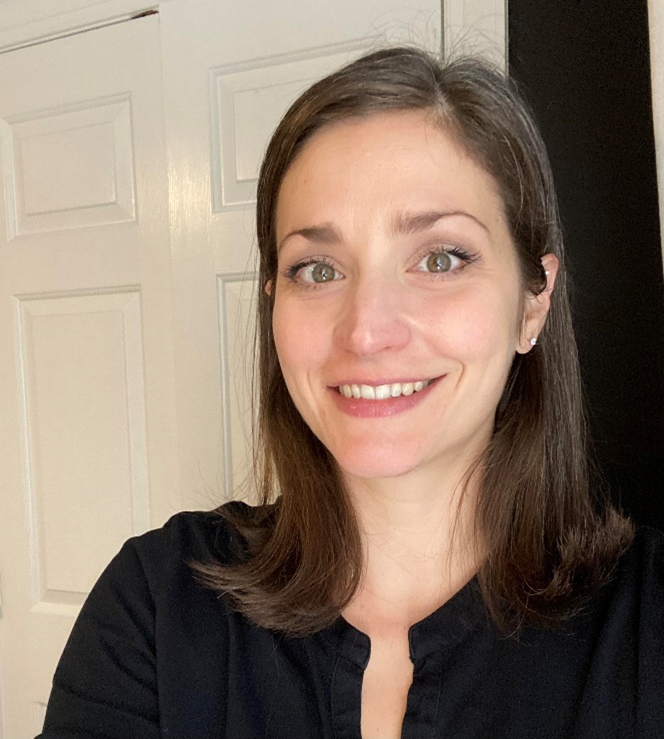 Dr. Meagan Zarwell is an Assistant Professor of Public Health Sciences and a member of the Academy for Population Health Innovation at the University of North Carolina at Charlotte. She received her PhD in public health with a focus in community health science from LSU Health Sciences Center and completed a NRSA postdoctoral fellowship in HIV Prevention at the Center for AIDS Intervention Research (CAIR) at the Medical College of Wisconsin. Meagan also has an MA in medical anthropology from the University of Memphis. Her research focuses on HIV prevention, social capital, and social connections among gay, bisexual, and same-gender-loving men, and transgender, non-binary, and gender expansive individuals.
Dr. Meagan Zarwell is an Assistant Professor of Public Health Sciences and a member of the Academy for Population Health Innovation at the University of North Carolina at Charlotte. She received her PhD in public health with a focus in community health science from LSU Health Sciences Center and completed a NRSA postdoctoral fellowship in HIV Prevention at the Center for AIDS Intervention Research (CAIR) at the Medical College of Wisconsin. Meagan also has an MA in medical anthropology from the University of Memphis. Her research focuses on HIV prevention, social capital, and social connections among gay, bisexual, and same-gender-loving men, and transgender, non-binary, and gender expansive individuals.
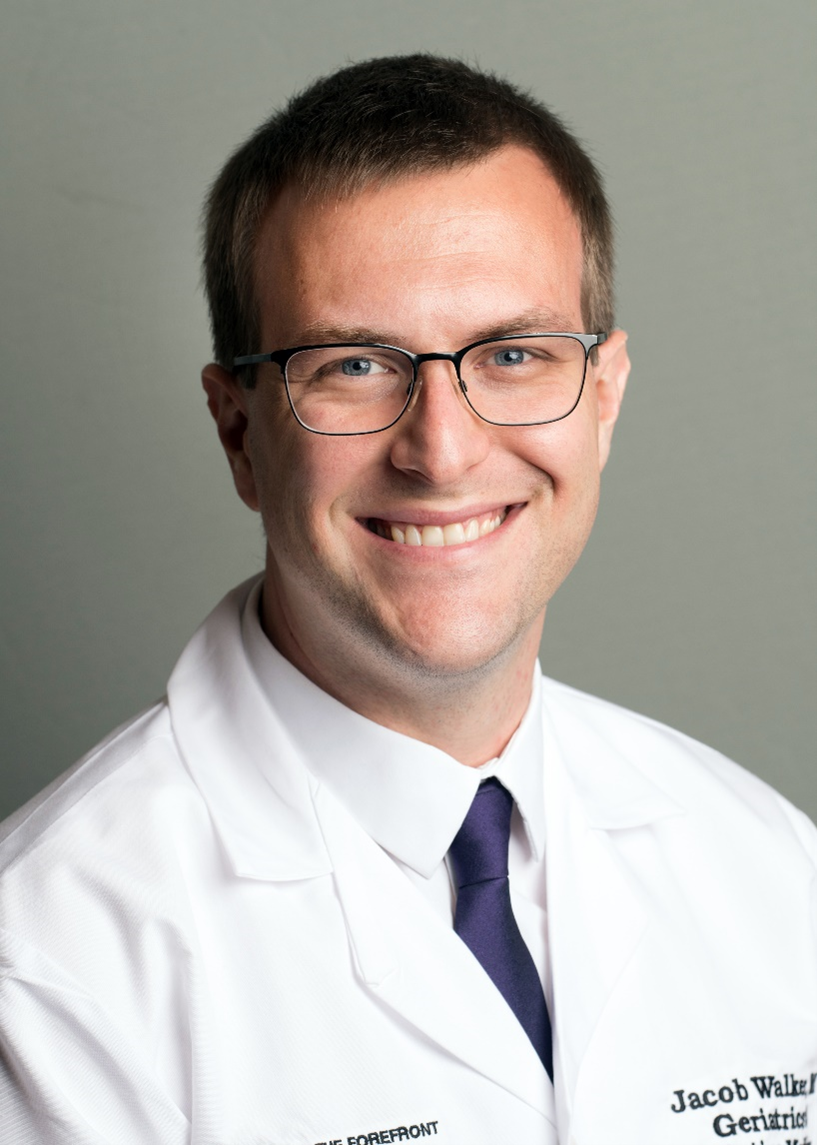 Dr. Jacob Walker, MD is a geriatrician and HIV specialist focused on the clinical care of older adults living with HIV. He completed his internal medicine residency and HIV training at the University of Colorado and his geriatrics fellowship at the University of Chicago where he is now an Assistant Professor of Geriatrics. His research focus is on program development and novel care delivery models for this rapidly growing population with special interest in polypharmacy and post-acute care coordination. He is a faculty member for the American Academy of HIV Medicine's Intensive Course on HIV and Aging."
Dr. Jacob Walker, MD is a geriatrician and HIV specialist focused on the clinical care of older adults living with HIV. He completed his internal medicine residency and HIV training at the University of Colorado and his geriatrics fellowship at the University of Chicago where he is now an Assistant Professor of Geriatrics. His research focus is on program development and novel care delivery models for this rapidly growing population with special interest in polypharmacy and post-acute care coordination. He is a faculty member for the American Academy of HIV Medicine's Intensive Course on HIV and Aging."
 Natalie L. Wilson, PhD, DNP, MPH, APRN-BC, is Assistant Professor of Nursing in the Department of Community Health Systems at the UCSF School of Nursing. Dr. Wilson’s research is informed by over 25 years of clinical expertise in primary care, HIV, and sexual health. As part of the Ending the HIV Epidemic National Strategy, she will focus on developing innovative solutions to address the constraints marginalized populations and those from disadvantaged socioeconomic environments have in accessing HIV Status Neutral Care Continuum. She will use mixed-methods implementation science methods to transform healthcare by building in health equity at the individual, system, and community levels. Dr. Wilson also conducts research in HIV Symptom Clusters and how phytocannabinoids may be used to mitigate symptoms and inflammation. Dr. Wilson received her doctoral degrees from the University of Alabama at Birmingham, master’s degrees of Nursing and Public Health from Vanderbilt University and UNC-Chapel respectively, and her bachelor’s degree from Spelman College.
Natalie L. Wilson, PhD, DNP, MPH, APRN-BC, is Assistant Professor of Nursing in the Department of Community Health Systems at the UCSF School of Nursing. Dr. Wilson’s research is informed by over 25 years of clinical expertise in primary care, HIV, and sexual health. As part of the Ending the HIV Epidemic National Strategy, she will focus on developing innovative solutions to address the constraints marginalized populations and those from disadvantaged socioeconomic environments have in accessing HIV Status Neutral Care Continuum. She will use mixed-methods implementation science methods to transform healthcare by building in health equity at the individual, system, and community levels. Dr. Wilson also conducts research in HIV Symptom Clusters and how phytocannabinoids may be used to mitigate symptoms and inflammation. Dr. Wilson received her doctoral degrees from the University of Alabama at Birmingham, master’s degrees of Nursing and Public Health from Vanderbilt University and UNC-Chapel respectively, and her bachelor’s degree from Spelman College.
 Dr. Rachel Chambers, Assistant Scientist at JHSPH, has been developing, implementing, and evaluating intergenerational behavioral health interventions for Native American children, youth, and their families for over 10 years at the Johns Hopkins School of Public Health. Her work focuses on 1) identifying the role and impact of engaging parents and other family members in youth-focused programming across adolescents and 2) using mixed methods approaches to identify appropriate and feasible designs for behavioral health interventions in underserved populations. Dr. Chambers has managed many rigorous evaluations of sexual health promotion and risk reduction programs and is currently the lead on a multi-site randomized controlled trial of a teen pregnancy and substance use primary prevention program for young girls and their female caregivers. Rachel received her BS in neuroscience from Tulane University, her MPH in international health from Boston University School of Public Health, and her PhD in Social and Behavioral Sciences from Tilburg University. She lives in Madison, WI with her husband, two daughters, and their Labrador retriever.
Dr. Rachel Chambers, Assistant Scientist at JHSPH, has been developing, implementing, and evaluating intergenerational behavioral health interventions for Native American children, youth, and their families for over 10 years at the Johns Hopkins School of Public Health. Her work focuses on 1) identifying the role and impact of engaging parents and other family members in youth-focused programming across adolescents and 2) using mixed methods approaches to identify appropriate and feasible designs for behavioral health interventions in underserved populations. Dr. Chambers has managed many rigorous evaluations of sexual health promotion and risk reduction programs and is currently the lead on a multi-site randomized controlled trial of a teen pregnancy and substance use primary prevention program for young girls and their female caregivers. Rachel received her BS in neuroscience from Tulane University, her MPH in international health from Boston University School of Public Health, and her PhD in Social and Behavioral Sciences from Tilburg University. She lives in Madison, WI with her husband, two daughters, and their Labrador retriever.
 Dr. Seul Ki Choi is a postdoctoral fellow at the University of Pennsylvania School of Nursing. Her research focuses on applying precision health approaches with innovative digital health interventions to address health disparities among sexual and gender minority youth. She received her PhD in Health Behavior from the University of North Carolina – Chapel Hill Gillings School of Global Public Health and MPH in Biostatistics from Indiana University.
Dr. Seul Ki Choi is a postdoctoral fellow at the University of Pennsylvania School of Nursing. Her research focuses on applying precision health approaches with innovative digital health interventions to address health disparities among sexual and gender minority youth. She received her PhD in Health Behavior from the University of North Carolina – Chapel Hill Gillings School of Global Public Health and MPH in Biostatistics from Indiana University.
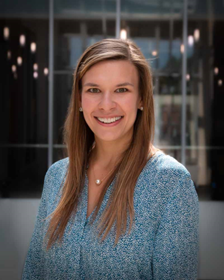 Brooke G. Rogers, Ph.D., M.P.H. she/her/hers is a Research Scientist at The Miriam Hospital in the Department of Medicine and Division of Infectious Diseases and an Assistant Professor (Research) at the Warren Alpert Medical School of Brown University in the Departments of Medicine and Psychiatry and Human Behavior. Dr. Rogers’ research focuses on HIV risk and resilience and the intersection of mental health and substance use with a focus on adapting evidence-based interventions to meet the needs of historically excluded groups (e.g. racial/ethnic minorities, LGBTQ+, persons with criminal justice involvement, persons engaged in sex work). Dr. Rogers is also a licensed clinical health psychologist and sees clients as part of a SAMHSA funded grant for the treatment of substance use disorders and co-occurring mental health issues in men who have sex with men at risk for and living with HIV.
Brooke G. Rogers, Ph.D., M.P.H. she/her/hers is a Research Scientist at The Miriam Hospital in the Department of Medicine and Division of Infectious Diseases and an Assistant Professor (Research) at the Warren Alpert Medical School of Brown University in the Departments of Medicine and Psychiatry and Human Behavior. Dr. Rogers’ research focuses on HIV risk and resilience and the intersection of mental health and substance use with a focus on adapting evidence-based interventions to meet the needs of historically excluded groups (e.g. racial/ethnic minorities, LGBTQ+, persons with criminal justice involvement, persons engaged in sex work). Dr. Rogers is also a licensed clinical health psychologist and sees clients as part of a SAMHSA funded grant for the treatment of substance use disorders and co-occurring mental health issues in men who have sex with men at risk for and living with HIV.
 Dr. Sarah Wood is a clinician scientist with a career mission to develop and implement innovative health care delivery strategies for adolescents and young adults aiming to improve quality and equitable delivery of sexual and reproductive health care. Dr. Wood is an Assistant Professor of Pediatrics at the University of Pennsylvania Perelman School of Medicine; an Attending Physician, Assistant Director of Adolescent HIV Services, and a faculty member in PolicyLab at the Children's Hospital of Philadelphia (CHOP); and the Co-Director of the Penn Center for AIDS Research Clinical Core. Dr. Wood began her career in HIV care delivery as a teen, working as a street outreach educator and community health worker. Dr. Wood provides medical care to youth living with and at risk of HIV at the CHOP Adolescent Initiative Clinic. Her NIMH-funded K23 award focuses on developing and implementing an HIV prevention intervention in adolescent primary care which harnesses STI diagnosis as a linkage point to biobehavioral HIV prevention services.
Dr. Sarah Wood is a clinician scientist with a career mission to develop and implement innovative health care delivery strategies for adolescents and young adults aiming to improve quality and equitable delivery of sexual and reproductive health care. Dr. Wood is an Assistant Professor of Pediatrics at the University of Pennsylvania Perelman School of Medicine; an Attending Physician, Assistant Director of Adolescent HIV Services, and a faculty member in PolicyLab at the Children's Hospital of Philadelphia (CHOP); and the Co-Director of the Penn Center for AIDS Research Clinical Core. Dr. Wood began her career in HIV care delivery as a teen, working as a street outreach educator and community health worker. Dr. Wood provides medical care to youth living with and at risk of HIV at the CHOP Adolescent Initiative Clinic. Her NIMH-funded K23 award focuses on developing and implementing an HIV prevention intervention in adolescent primary care which harnesses STI diagnosis as a linkage point to biobehavioral HIV prevention services.
 Dr. Candice Sternberg is an Assistant Professor at the University of Miami in the Division of Infectious Diseases. She completed her Internal Medicine training at the University of Florida-Jacksonville. She completed her fellowship in Infectious Diseases at the University of Miami/Jackson Memorial Hospital. She is Haitian American. Her work focuses on improving health outcomes among Haitians and Haitian-Americans here in Miami and abroad.
Dr. Candice Sternberg is an Assistant Professor at the University of Miami in the Division of Infectious Diseases. She completed her Internal Medicine training at the University of Florida-Jacksonville. She completed her fellowship in Infectious Diseases at the University of Miami/Jackson Memorial Hospital. She is Haitian American. Her work focuses on improving health outcomes among Haitians and Haitian-Americans here in Miami and abroad.
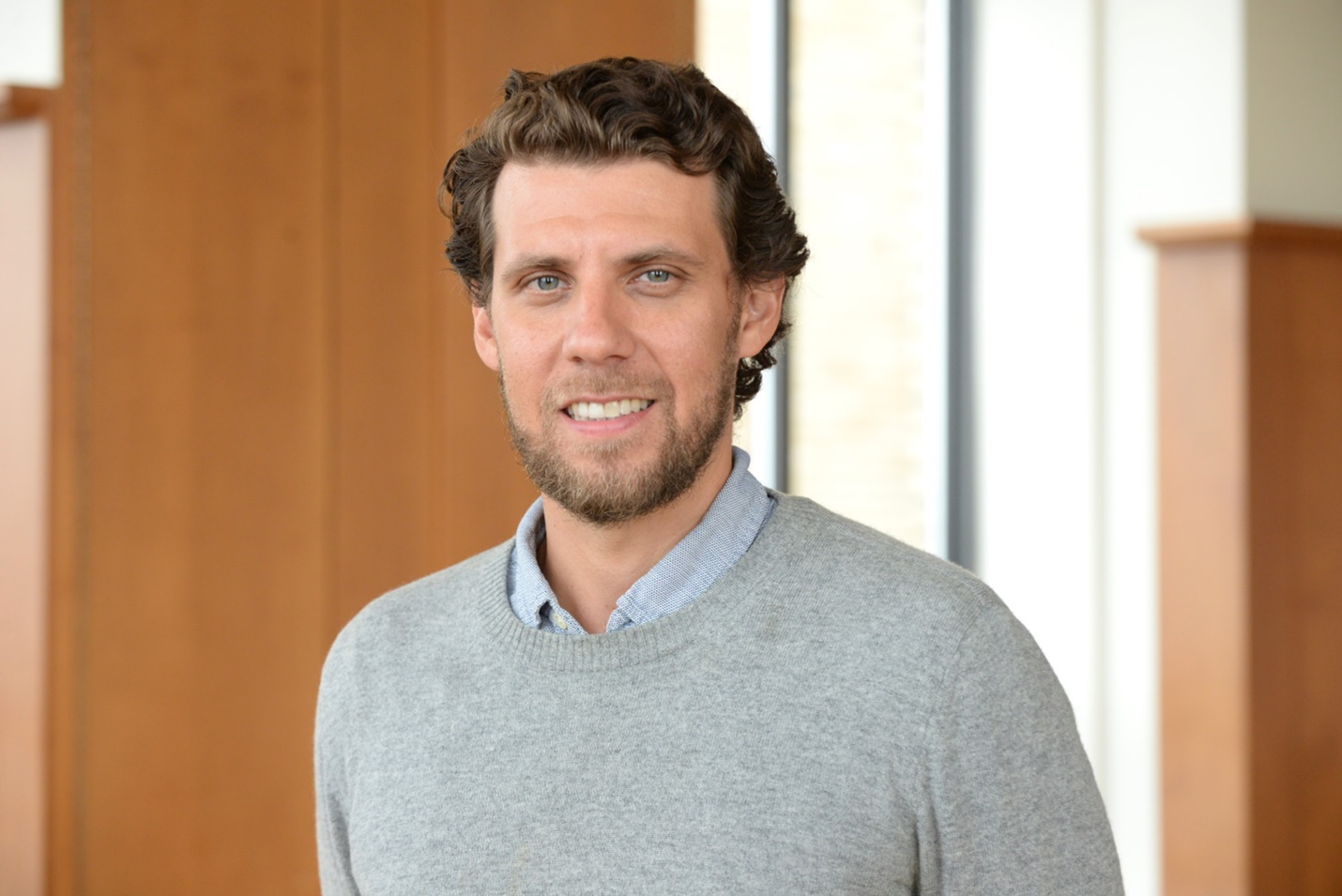 Dr. Philip Kreniske is an Assistant Professor with the HIV Center for Clinical and Behavioral Studies at the New York State Psychiatric Institute and Columbia University. Kreniske analyzes processes of inequality within different socio-cultural contexts in order to design interventions that support vulnerable young people. He concentrates on the impact of socioeconomic factors and digital technology on adolescent and young adult development in the U.S. and sub-Saharan Africa.
Dr. Philip Kreniske is an Assistant Professor with the HIV Center for Clinical and Behavioral Studies at the New York State Psychiatric Institute and Columbia University. Kreniske analyzes processes of inequality within different socio-cultural contexts in order to design interventions that support vulnerable young people. He concentrates on the impact of socioeconomic factors and digital technology on adolescent and young adult development in the U.S. and sub-Saharan Africa.
 Dr. Tyler Bartholomew, Ph.D., is a Research Assistant Professor in the Division of Health Services Research and Policy at the University of Miami School of Medicine. He is the co-Principal Investigator of the University of Miami Harm Reduction Research Group. His translational research has focused on designing and scaling-up low-barrier HIV prevention and treatment interventions for people who inject drugs. Dr. Bartholomew led the research and evaluation efforts of the IDEA Miami Syringe Services Program (SSP), the first legal syringe services program in Florida. His research and advocacy efforts translated into statewide legislation authorizing all counties in Florida to implement these evidence-based programs. Dr. Bartholomew received his Ph.D. in Prevention Science and Community Health from the University of Miami.
Dr. Tyler Bartholomew, Ph.D., is a Research Assistant Professor in the Division of Health Services Research and Policy at the University of Miami School of Medicine. He is the co-Principal Investigator of the University of Miami Harm Reduction Research Group. His translational research has focused on designing and scaling-up low-barrier HIV prevention and treatment interventions for people who inject drugs. Dr. Bartholomew led the research and evaluation efforts of the IDEA Miami Syringe Services Program (SSP), the first legal syringe services program in Florida. His research and advocacy efforts translated into statewide legislation authorizing all counties in Florida to implement these evidence-based programs. Dr. Bartholomew received his Ph.D. in Prevention Science and Community Health from the University of Miami.
Dr. Leslie A. Enane, MD, MSc, is an Assistant Professor of Pediatrics in the Ryan White Center for Pediatric Infectious Disease and Global Health at Indiana University School of Medicine, and Director of Pediatric HIV Services at Riley Hospital for Children. Her research investigates challenges for retention and engagement in HIV and TB care for adolescents, and studies interventions to improve adolescent outcomes. She received a K23 Career Development Award from the Eunice Kennedy Shriver National Institute of Child Health and Human Development of the National Institutes of Health, for research investigating adolescent disengagement from HIV care in Kenya, and developing a tool to assess risks for disengagement. Dr. Enane co-leads the East Africa TB Sentinel Research Network of the NIH-funded International Epidemiology Databases to Evaluate AIDS (IeDEA), and serves as Co-Chair for the Multiregional TB Sentinel Research Network of IeDEA.
 Dr. Oluwaseyi Isehunwa, PhD, MPH, MBChB, is a Postdoctoral fellow in the Department of Medicine at the University of Alabama at Birmingham (UAB). Her research interests include the design and implementation of interventions to improve HIV prevention for men and women in sub-Saharan Africa within the context of their reproductive goals. Additionally, she is interested in the use of implementation science strategies to promote PrEP uptake among black adolescent girls and women in the United States. Dr. Isehunwa received a PhD in Health Systems and Policy from the University of Memphis and completed an MPH in Epidemiology, Maternal and Child Health at Boston University.
Dr. Oluwaseyi Isehunwa, PhD, MPH, MBChB, is a Postdoctoral fellow in the Department of Medicine at the University of Alabama at Birmingham (UAB). Her research interests include the design and implementation of interventions to improve HIV prevention for men and women in sub-Saharan Africa within the context of their reproductive goals. Additionally, she is interested in the use of implementation science strategies to promote PrEP uptake among black adolescent girls and women in the United States. Dr. Isehunwa received a PhD in Health Systems and Policy from the University of Memphis and completed an MPH in Epidemiology, Maternal and Child Health at Boston University.
 Dr. Ayesha Appa is a UCSF’s inaugural dually trained senior fellow in HIV/Infectious Diseases and Addiction Medicine, interested in the bi-directional relationship between substance use and severe infections, including HIV. In fellowship thus far, she has helped define gaps in effective care for people who have substance use disorders and deep-seated infections, investigating comparative S. aureus infection outcomes in persons who use drugs, drug-related deaths in people with HIV, and overdose deaths following the COVID-19 pandemic. Dr. Appa hopes to gain advanced training in implementation science to deliver patient-centered simultaneous care for HIV and substance use disorders.
Dr. Ayesha Appa is a UCSF’s inaugural dually trained senior fellow in HIV/Infectious Diseases and Addiction Medicine, interested in the bi-directional relationship between substance use and severe infections, including HIV. In fellowship thus far, she has helped define gaps in effective care for people who have substance use disorders and deep-seated infections, investigating comparative S. aureus infection outcomes in persons who use drugs, drug-related deaths in people with HIV, and overdose deaths following the COVID-19 pandemic. Dr. Appa hopes to gain advanced training in implementation science to deliver patient-centered simultaneous care for HIV and substance use disorders.
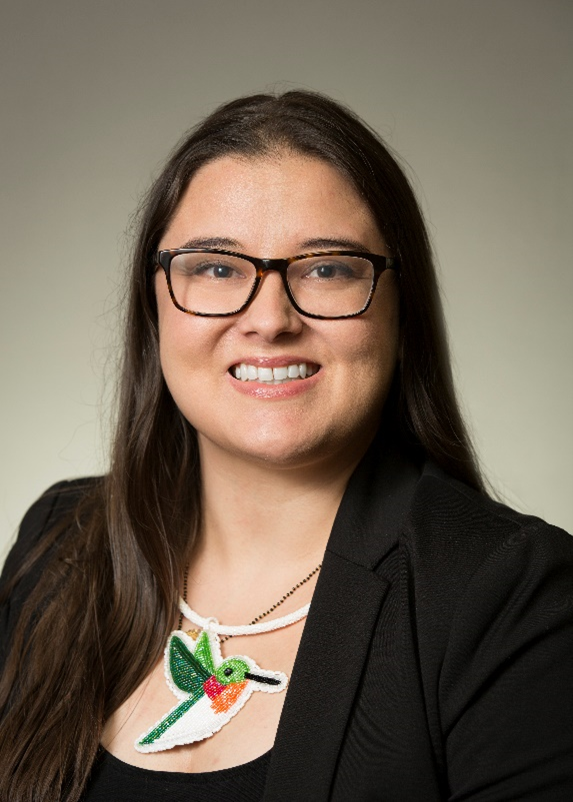 Dr. Jessica Jaiswal (she/her) is an Assistant Professor in the Department of Health Science at The University of Alabama and a Visiting Scholar at Yale University in the Center for Interdisciplinary Research on AIDS. She earned her PhD in Sociomedical Sciences from Columbia University in the City of New York, her MPH in Behavioral Science and Health Education from Emory University Rollins School of Public Health, and her bachelor’s degree from the University of Michigan in Women’s Studies, Native American Studies and Latin American Studies. Dr. Jaiswal’s main research areas focus on HIV-related inequities among minoritized folks including LGBTQ people, communities of color and people using medications for opioid use disorders, with an emphasis on stigma, mistrust and racism.
Dr. Jessica Jaiswal (she/her) is an Assistant Professor in the Department of Health Science at The University of Alabama and a Visiting Scholar at Yale University in the Center for Interdisciplinary Research on AIDS. She earned her PhD in Sociomedical Sciences from Columbia University in the City of New York, her MPH in Behavioral Science and Health Education from Emory University Rollins School of Public Health, and her bachelor’s degree from the University of Michigan in Women’s Studies, Native American Studies and Latin American Studies. Dr. Jaiswal’s main research areas focus on HIV-related inequities among minoritized folks including LGBTQ people, communities of color and people using medications for opioid use disorders, with an emphasis on stigma, mistrust and racism.
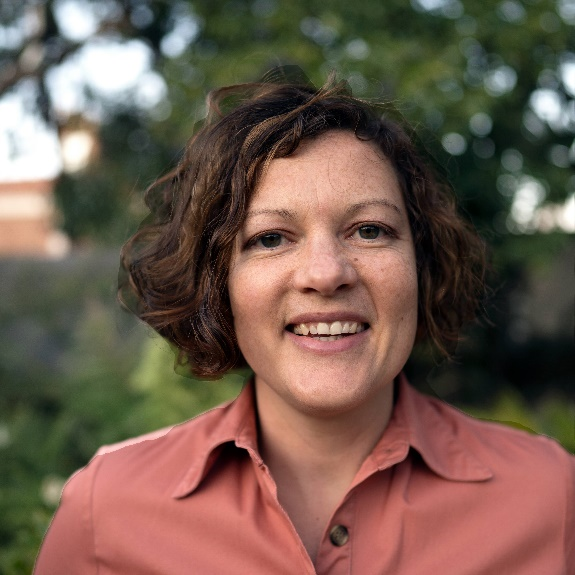 Dr. Abigail Hatcher is an Assistant Professor of Health Behavior at UNC Gillings School of Global Public Health in Chapel Hill and an Honorary Associate Professor in the Wits School of Public Health in Johannesburg. She researches HIV prevention, care and treatment in the context of intimate partner violence, mental ill health, and poverty and has expertise in designing and trialing social interventions. Hatcher is an editorial board member of AIDS and an associate editor at BMC Pregnancy and Childbirth.
Dr. Abigail Hatcher is an Assistant Professor of Health Behavior at UNC Gillings School of Global Public Health in Chapel Hill and an Honorary Associate Professor in the Wits School of Public Health in Johannesburg. She researches HIV prevention, care and treatment in the context of intimate partner violence, mental ill health, and poverty and has expertise in designing and trialing social interventions. Hatcher is an editorial board member of AIDS and an associate editor at BMC Pregnancy and Childbirth.
 Carrie Lyons, MPH is a third year PhD student at Johns Hopkins School of Public Health studying Infectious Disease Epidemiology. She joined the PhD program in 2019 and completed a two-year (2019-2021) fellowship with the NIH/NIAD T32 HIV Epidemiology and Prevention Training Program. Carrie Lyons has worked in international public health for over 11 years in capacity building, program implementation, and epidemiological research across more than 20 low- and middle-income countries. Her experience includes 4 years of international public health program implementation including with JSI in Washington DC and with the United States Peace Corps in Nicaragua. In 2014, she joined the Center for Public Health and Human Rights at Johns Hopkins School of Public Health (JHSPH) and coordinated study implementation. Carrie holds an MPH in Epidemiological and Biostatistical Methods for Public Health and Clinical Research from JHSPH, and a BS in Biology from University of Arizona. Her overarching research goal is to support effective and efficient evidence-based approaches to address health disparities in infectious diseases with focus on HIV. Her research to date has focused on measuring structural level factors affecting the health of marginalized populations; stigma measurement and interventions; understanding engagement in healthcare among marginalized populations; innovative methods for measurement and interventions for marginalized populations.
Carrie Lyons, MPH is a third year PhD student at Johns Hopkins School of Public Health studying Infectious Disease Epidemiology. She joined the PhD program in 2019 and completed a two-year (2019-2021) fellowship with the NIH/NIAD T32 HIV Epidemiology and Prevention Training Program. Carrie Lyons has worked in international public health for over 11 years in capacity building, program implementation, and epidemiological research across more than 20 low- and middle-income countries. Her experience includes 4 years of international public health program implementation including with JSI in Washington DC and with the United States Peace Corps in Nicaragua. In 2014, she joined the Center for Public Health and Human Rights at Johns Hopkins School of Public Health (JHSPH) and coordinated study implementation. Carrie holds an MPH in Epidemiological and Biostatistical Methods for Public Health and Clinical Research from JHSPH, and a BS in Biology from University of Arizona. Her overarching research goal is to support effective and efficient evidence-based approaches to address health disparities in infectious diseases with focus on HIV. Her research to date has focused on measuring structural level factors affecting the health of marginalized populations; stigma measurement and interventions; understanding engagement in healthcare among marginalized populations; innovative methods for measurement and interventions for marginalized populations.
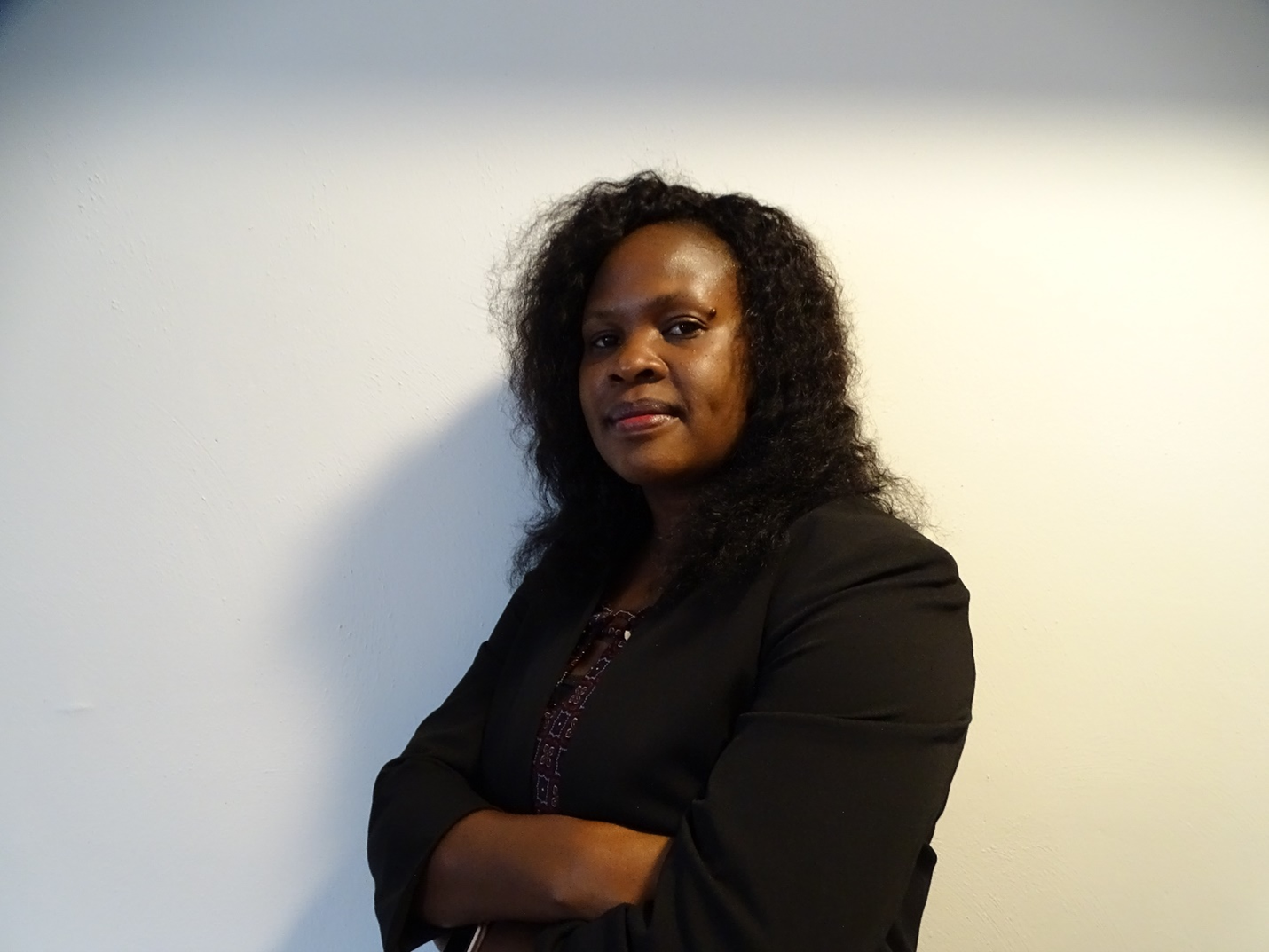 Dr. Sylvia Shangani, PhD, ScM, MPH, is an Assistant Professor of Community and Environmental Health at College of Health Sciences, Old Dominion University. Dr. Shangani completed her PhD in Behavioral Social and Health Sciences at Brown University. Her research aims to identify and understand the underlying behavioral and social risk factors for health inequities in HIV and mental health outcomes and develop behavioral interventions to reduce risk among stigmatized and vulnerable populations, both in the US and sub-Saharan Africa.
Dr. Sylvia Shangani, PhD, ScM, MPH, is an Assistant Professor of Community and Environmental Health at College of Health Sciences, Old Dominion University. Dr. Shangani completed her PhD in Behavioral Social and Health Sciences at Brown University. Her research aims to identify and understand the underlying behavioral and social risk factors for health inequities in HIV and mental health outcomes and develop behavioral interventions to reduce risk among stigmatized and vulnerable populations, both in the US and sub-Saharan Africa.
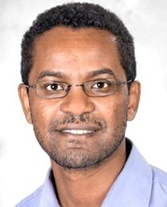 Dr. Sebhat Erqou MD, MPhil, PhD is a general cardiologist at the VA Providence Healthcare System and an Assistant Professor of Medicine at Brown University with interests related to imaging and prevention. His research focus includes cardiovascular risk factors, differences in cardiovascular outcomes, and HIV-associated cardiac dysfunction.
Dr. Sebhat Erqou MD, MPhil, PhD is a general cardiologist at the VA Providence Healthcare System and an Assistant Professor of Medicine at Brown University with interests related to imaging and prevention. His research focus includes cardiovascular risk factors, differences in cardiovascular outcomes, and HIV-associated cardiac dysfunction.
In 2020, he was awarded a VA regional career development award to study the quality of cardiovascular care among HIV(+) Veterans and its variation across VHA facilities. He plans to submit a national Career Development Award proposal in December entitled, Improving Cardiovascular Care Quality for Veterans with HIV. The goal of the national CDA is to build on results from the regional award by developing a strategy for improving quality of CV care in this population. His long-term goal is to prevent cardiovascular disease in the aging Veteran HIV population by identifying and implementing strategies for improving the quality of CV care provided to them.
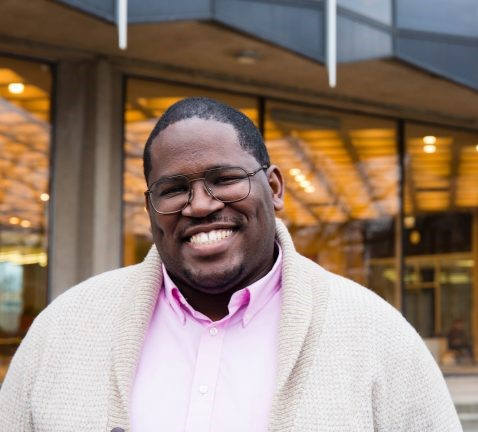 Dr. Darnell N. Motley, PhD, is a clinical community psychologist committed to promoting sexual health among individuals who experience multiple forms of marginalization. Dr. Motley’s research examines and challenges the ways that structural factors (like racism, homophobia, and health stigma) attempt to limit the experiences of racial, sexual, and gender minorities, as well as individuals living with HIV. More specifically, Dr. Motley uses qualitative research to inform the development and adaptation of interventions intended to impact social determinants of sexual health. Currently, Dr. Motley is a Research Assistant Professor in the Department of Medicine at the University of Chicago and Director of Structural Interventions for the Chicago Center for HIV Elimination.
Dr. Darnell N. Motley, PhD, is a clinical community psychologist committed to promoting sexual health among individuals who experience multiple forms of marginalization. Dr. Motley’s research examines and challenges the ways that structural factors (like racism, homophobia, and health stigma) attempt to limit the experiences of racial, sexual, and gender minorities, as well as individuals living with HIV. More specifically, Dr. Motley uses qualitative research to inform the development and adaptation of interventions intended to impact social determinants of sexual health. Currently, Dr. Motley is a Research Assistant Professor in the Department of Medicine at the University of Chicago and Director of Structural Interventions for the Chicago Center for HIV Elimination.